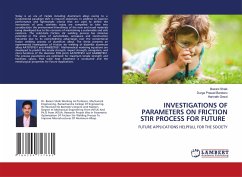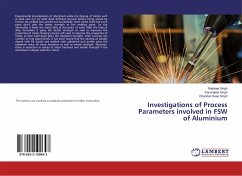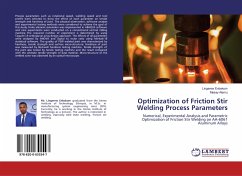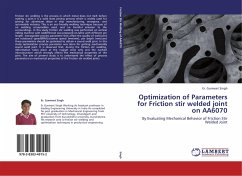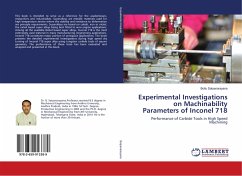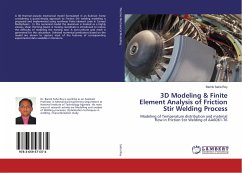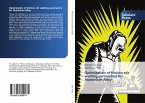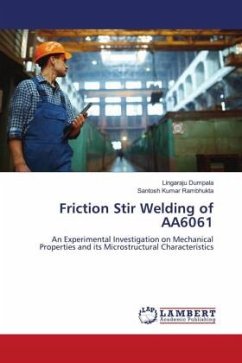Today is an era of metals including Aluminium alloys owing to a fundamental paradigm shift in research objectives. In addition to superior performance and lightweight criteria that are used to define the innovations of yore, scientists today are compelled to take into consideration the environment-friendliness of the new and novel materials being developed due to the concerns of maintaining a sustainable and safe existence. The solid-state Friction stir welding process has immense potential in the areas of automobiles, aerospace and construction industries due to its overwhelming advantages over the conventional fusion welding process of aluminum alloys. The thesis presents an experimental investigation of friction stir welding of dissimilar aluminum alloys AA7075T651 and AA6082T651. Mathematical modeling equations are developed to predict the tensile strength, impact strength, elongation, and micro-hardness of the dissimilar FSW joints AA7075T651 and AA6082T651. The process parameters are optimized for maximum tensile strength and hardness values. Post weld heat treatment is conducted and the metallurgical properties for Future Applications.

